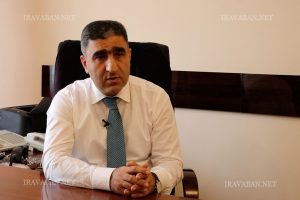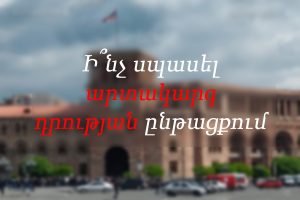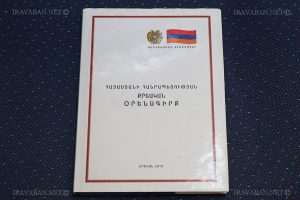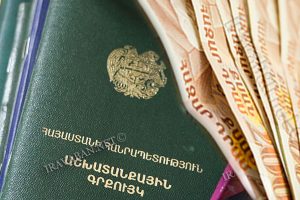Recently, the Ministry of Justice presented a Draft Law “On Equal Rights” on the unified website for the publication of legal acts.
The law provides that the Ombudsman should be involved in ensuring the equality of rights. Additionally an equality Body that function on a voluntary basis without payment, would be established within the Ombudsman’s office.
“I believe that this function should be entrusted to a separate body. International practice allows us to consider the Ombudsman as an equality body, which is happening in our case. However, in these conditions, it is important for the State shall provide independence, and adequate financing to the body to which it (the state) entrusts ensuring equality, and at the same time this body should have appropriate resources, and powers to be able to carry out it functions,” advocate Ms Nvard Piliposyan said.
The adjacent Council of Equality, which should be established, will function as an advisory body and the Ombudsman can follow the advice or not.
“This body should operate on a voluntary basis, so it should not be remunerated, which implies that persons involved in it will not be able to provide all their time for that work. In addition, the Ombudsman has some limitations with his powers as he cannot, for example, impose a fine if he finds that discrimination has occurred. Here we have a problem as the Ombudsman will not be able to apply sanctions that will have practical consequences,” the advocate said.
According to the draft, the Ombudsman will also have no jurisdiction over the private sector, and many of the discriminatory manifestations, in the advocate’s words, are in the private sector. “In fact, a large number of people who had undergone discrimination cannot be defended by resorting to this state body. In this regard, In this regard, I do not really appreciate the current version of the draft.”
Definition of discrimination in the Armenian legislation does not exist yet. The Constitution states that discrimination is prohibited on a certain basis, but does not give a definition of discrimination.
Article 29 of the RA Constitution states: “Discrimination based on sex, race, skin colour, ethnic or social origin, genetic features, language, religion, world view, political or other views, belonging to a national minority, property status, birth, disability, age, or other personal or social circumstances shall be prohibited.“
There is the Law on Equal Rights and Equal Opportunities for Women and Men, which defines gender equality and gender discrimination and its types, however, according to advocate Nvard Piliposyan, it does not envisage how a person can restore his/her rights if gender discrimination has taken place.
According to the advocate, the law is more declarative and does not provide mechanisms. “Currently, the need for a comprehensive law on discrimination stems from the requirement to determine what discrimination is, what are its types, in which cases we may speak of discrimination and in which case we can state that the situation is not discrimination.”
Currently the advocates try to raise the issue in courts through referring to refer to ECtHR case law. At the same time the expert believes that discrimination is a common phenomenon in Armenia. “It refers to the absolute majority of our citizens if we consider all the grounds for discrimination. For example, if a person is poor, it is assumed that the latter should be deprived of some services or quality services. In our society, a considerable group of people is deprived of equality. There can be no society where some are more equal than others,” lawyer Hovhannes Madoyan says.
According to him, one of the most striking examples is discrimination against women in society. “For example, we have high ranking officials, mostly men. There is also a study that the business is not ready to pay the woman more money, and that is because a woman is not able to demand her salary, which means that from the very beginning, the woman puts up with the fact that she will get less salary than a man. When we speak of equality, we must take into account that there are groups of people who have been depressed and restricted by the society for so long time that they have no capacity to claim such rights, whether it be salaries or the right to education. The people lack this capacity to demand. And the role of the state here is important to create situations and mechanisms where every individual will not need to constantly demand.”
The lawyer states that a person must be the owner of his right, but the state must do the utmost to ensure that the citizen does not have the whole burden. “And we come to the necessity of the existence of law.”
Nvard Piliposian says: “There is a good aspect in this draft that comes from international standards. This is the burden of proof when the discriminated person is not required to prove that he has been subjected to discrimination. He should only present evidence of discrimination and the opposite side, i.e. a person who has exercised discrimination, must prove that there was no discrimination in this case. “
The advocate also notes that there are some types of evidence that are not envisaged by our legislation, but it will be necessary to apply them to prove the fact of discrimination. For example, to carry out experiments, to present statistical data, to present indisputable facts as evidence, and there are no guarantees and mechanisms to protect a person if a violation is recognized. “International practice in this regard speaks about compensation and we come to the institute of moral damage, which is not entirely regulated in our case, i.e. only in the case of certain rights, and under certain circumstances. For example, if the state body has committed that violation, only then can it be compensated and even if discrimination is included in the list of rights in which case a person can receive compensation, we again come to the situation where that may happen only in relations with state bodies
Discrimination in international practice is not considered a criminal offense and no punishment is envisaged for that purpose. In case of discrimination, a person may request to restitute his right, for example, if a person is not admitted to work or has been dismissed from work because of his religious convictions, he may request restitution; this will be the restoration of the right.
According to our interlocutors, the state should take certain steps to prevent this situation.
Yevgenya Hambardzumyan














